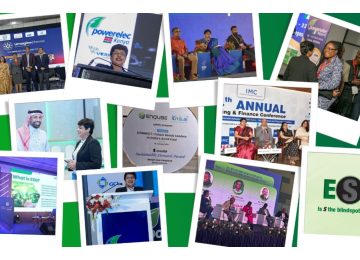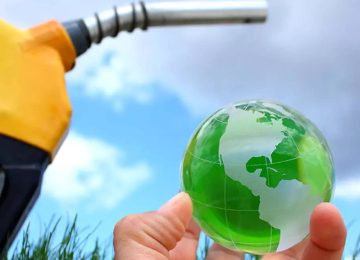IFC has partnered with Bajaj Finance Limited (BFL) to invest $400 million out of BFL’s $1 billion fundraising campaign.
The funding aims to support women-owned microenterprises and micro-borrowers in India. It also aims to enhance access to climate finance for electric vehicles and EECG, promote financial inclusion, and enhance competition in the climate finance market.
Sandeep Jain, Chief Financial Officer & Chief Operating Officer, Bajaj Finance Ltd., said, “Responsible business practices, driven by our ESG principles, are foundational to how we do business. IFC’s funding of $400 million serves as a catalyst for diversifying our financing sources. With this, our volume of outstanding climate loans stands to increase 4x to $600 million in 2027 from over $150 million in 2024. It helps us enable greater usage of EVs and energy-efficient consumer goods, support more women-owned micro-borrowers, and contribute better to India’s inclusive and low carbon future.”
Imad N. Fakhoury, Regional Director for South Asia, IFC, said, “Accelerating climate financing is crucial for India to meet its net-zero goals. IFC’s investment in Bajaj Finance will boost market competition, inspiring other NBFCs and investors to expand their financing for energy-efficient solutions, e-mobility, and microfinance. Together with Bajaj Finance, a like-minded partner, we are fully committed to accelerating green growth for the country, while also empowering women and closing the gender gap.”
India is the world’s third-largest energy-consuming nation. As the country rapidly develops its energy sector, millions of households are expected to buy new appliances, air conditioners, and vehicles. By 2050, the demand for air conditioners is expected to rise nine-fold, increasing greenhouse-gas emissions significantly. The household appliances market in India is further estimated to be $59.19 billion in 2024 and projected to grow annually at 7.35 percent.
Against this backdrop, EECG is key to India’s low carbon growth path, especially with households accounting for 26 percent of overall energy consumption and 25 percent of electricity consumption. EECG will help consumers save on electricity bills and support India’s goal of cutting emissions intensity by 45 percent by 2030. However, increasing awareness and understanding of EECG is essential. While India has a Bureau of Energy Efficiency-led Star Label program to rate the energy efficiency of consumer goods, the adoption of EECG and financing is limited. Only 26 percent of consumer goods requiring a mandatory star rating (except LED lamps) are rated as 5- or 4-star efficient.
Along with EECG, EVs are key to India’s decarbonization efforts—transportation accounts for around 12 percent of emissions—with the potential to improve accessibility, increase incomes, and create jobs. Although EV adoption has grown, high financing costs and perceived risks remain barriers to its adoption.
Supporting women-owned microenterprises and micro-borrowers is crucial for India’s inclusive growth. With microenterprises making up 99 percent of the 63 million MSMEs in India, and most women-owned MSMEs falling into this category, enhancing their access to credit can unlock immense growth potential and drive economic empowerment for women nationwide.












